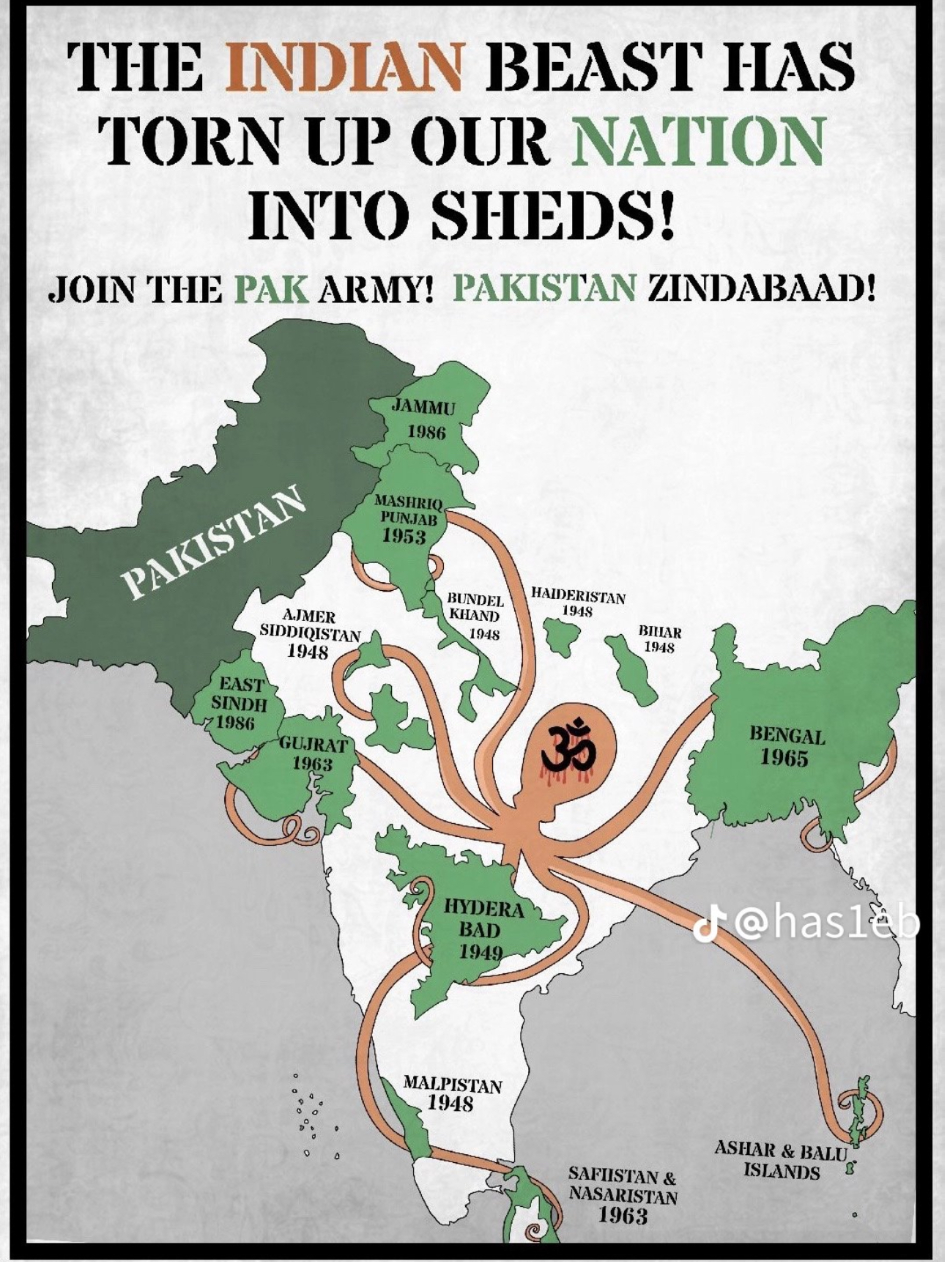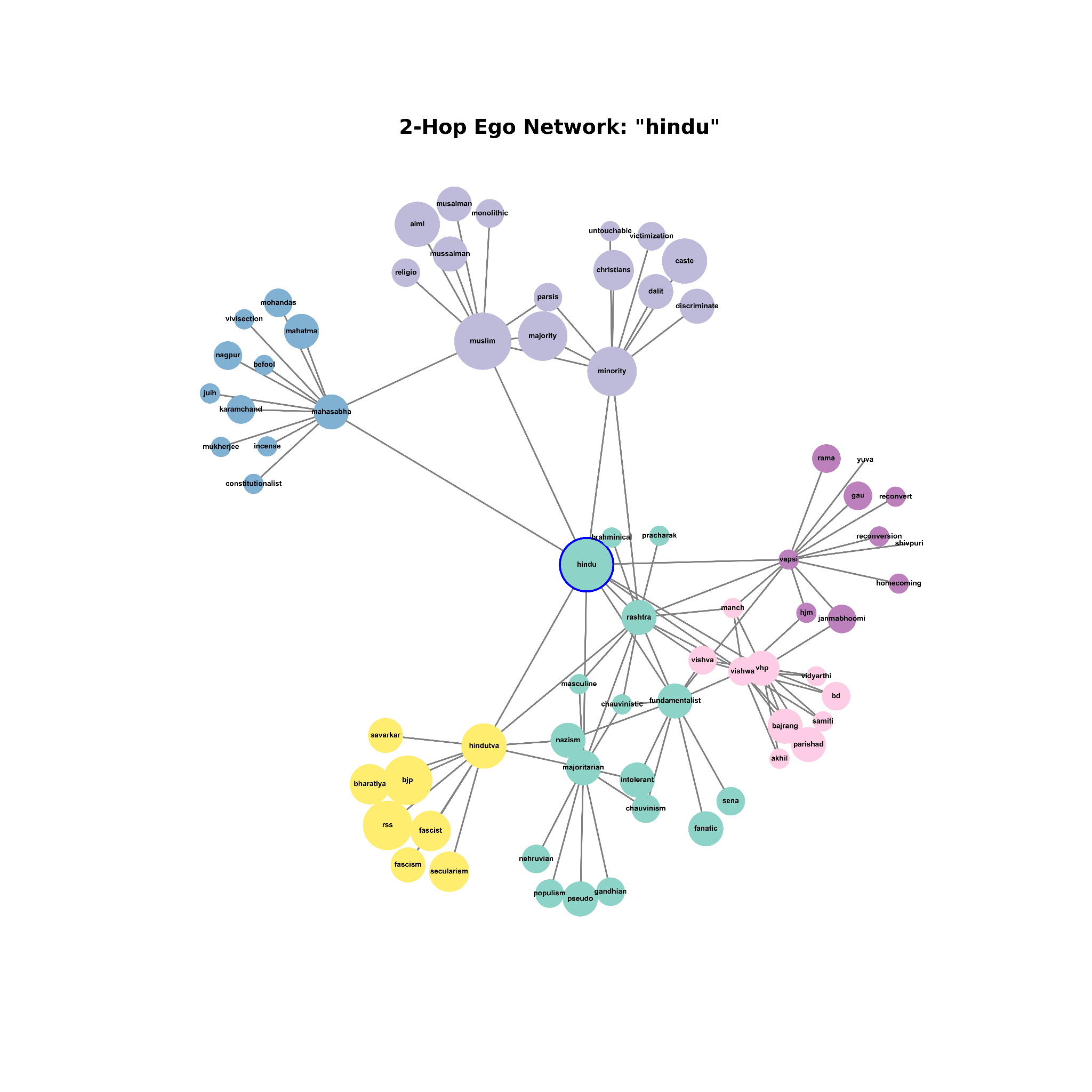
Social Cybersecurity and Network Analysis of Pakistani Influence Operations Targeting India
By Prasiddha Sudhakar
In an era where information warfare has become a potent tool in international relations, the historical conflict between India and Pakistan has evolved into a new digital battleground. Since Pakistan’s founding in 1947, interference into Indian internal affairs has always existed: yet in an era of social media, such interference has taken the form of direct confrontations through trolls, spam and bot accounts. In 2020, Facebook removed 103 posts linked to Pakistan’s Inter-Service Public Relations (ISPR) of the Pakistani military which sought to promote Pakistani nationalism, alleged military superiority and both Anti-India and Anti-Hindu inflammatory messaging.
Analysis of Hilal Magazine
Hilal Magazine serves as a crucial communication medium between the military and the civilian populace. It is instrumental in promoting the military's ideological and strategic viewpoints, particularly framing India as an expansionist threat, which justifies the military's dominant role in Pakistan's politics and aligns national identity with Islamic values against India’s Hindu majority.
Using Word2Vec, Ego Networks and Cosine Similarity - analysis of both “India” and “Hindu”, Hilal reveals an inflammatory portrayal of India, underscored by terms like "Belligerence" (0.79) and "Clampdown" (0.76), suggesting a narrative that frames India as aggressive and repressive. For "Hindu," the magazine emphasizes a narrative of fundamentalism and majoritarianism, highlighted by terms such as "Fundamentalist" (0.72) and "Majoritarian" (0.73), which align with a depiction of the Hindu identity as intertwined with extremism.
Twitter Campaigns
The study finds that historically, Pakistani influencers affiliated with the Pakistan Tehreek-e-Insaf (PTI) party orchestrated Twitter campaigns to trend topics degrading India, focusing on alleged human rights violations. For instance, on Indian Republic Day, influencers promoted hashtags such as #DamnocracyDay and #FakeUnionofIndia, aiming to draw international attention and discredit India's democracy. Currently, these operations have evolved to encompass the appropriation of prevailing trends in India. These trends include a range of topics such as political developments, ongoing events, Hindu-Muslim tensions, economic issues, and geopolitical dynamics, with a particular focus on territorial disputes between India and Pakistan. This shift indicates a more sophisticated and contextually aware approach in Pakistani influence tactics.
While existing research has predominantly focused on qualitative examples, this thesis applies social cybersecurity frameworks, social network analysis and computational text analysis to investigate Pakistani influence operations targeting India. The study deploys large language models (LLMs) for data annotation to identify whether an account was Pakistani or not based on characteristics to further quantify existence and interference of Pakistani accounts.
This study is divided into two parts: one which uses Word2Vec, Ego Networks and Topic Analysis to analyze Hilal Magazine, the official publication of the ISPR, and the second on Twitter hashtags trending in Pakistan with a focus on India.
Using the BEND Framework in ORA-PRO to analyze trending hashtags on Pakistani Twitter that target India, several key findings show that:
- Accounts identified as Pakistani predominantly targeted non-Pakistani users and seemed to hijack hashtags that were gaining traction in Indian discussions.
- Contrary to the initial hypothesis that Pakistani accounts would amplify polarizing content from both the BJP and Congress parties, the analysis revealed a noticeable prevalence of only anti-BJP messaging. For instance, in the case of the hashtag #ByeByeModi, both Pakistani and bot accounts (identified using Bothunter) were actively involved in amplifying this trend.
- Pakistani accounts predominantly supported the PTI party.
- A recurring campaign noted was for KashmirSolidarityDay, during which all identified government accounts actively participated in promoting the trend, underscoring a unified stance on this issue.
Further research is needed to deepen understanding of Pakistani influence operations targeting India, with a comprehensive analysis to enhance monitoring and data annotation.

